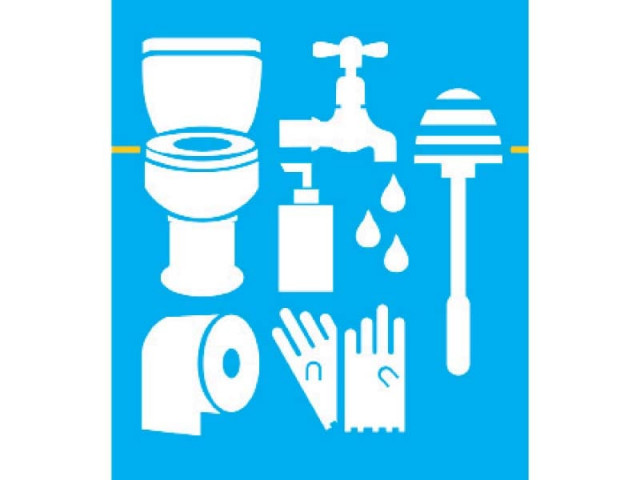World Toilet Day: All the world’s a loo, and education can change it
Need for awareness to end unsanitary lavatory habits urged.

Need for awareness to end unsanitary lavatory habits urged.
Speakers at Higher Education Commission (HEC) while observing the World Toilet Day stressed for the change in the mindset and behaviour regarding proper sanitation and usage of toilets.
The United Nations has designated November 19 as World Toilet Day to encourage changes in policies for issues ranging from enhancing water management to putting an end to open-air defecation.
The basic purpose of observing this day is to advocate use of hygienic toilets and forging effective partnerships for the purpose.
Ministry of Climate Change Secretary Hassan Abbas shared some eye-opening statistics about toilets usage trends in the country. According to statistics from 2012, 72 percent of Pakistanis use flush toilets, 10 percent use non-flush ones while a staggering 18 per cent of the population has no access to proper toilets, he said.

He added that the government was working to increase the efficiency of clean water supply and sanitation, which also happens to be a challenge across the globe.
Earlier, University of Gujrat Vice Chancellor Dr Nizamuddin said toilets alone were not enough as clean water, hand-washing arrangements and the hygiene-level of the facilities themselves were equally important.
“Self-sustaining pilot projects should be initiated in the areas lacking proper toilets. Besides, the education sector should also be involved to educate people on a larger scale,” he opined. “Because of the complexity of the subject, there is a need for a general behavioural change in society followed by structural reforms to mobilise people and communities in a systematic manner.”
According to the United Nations Children’s Fund (UNICEF), which organised the event, about 43 million people defecate in the open in Pakistan.
UNICEF Pakistan WASH Specialist Kamran Naeem stated that on an average, a child dies in Pakistan every minute due to diarrhoea, adding that the country was facing a major challenge in achieving the MDG target of 64 per cent access to improved sanitation by 2015.
He said that although the subject of open defecation and use of toilets is considered a taboo in Pakistan, a comprehensive effort on emergency basis was needed to resolve it.
Acting HEC Chairman Imtiaz Hussain Gilani was of the view that the discussion with educationists and students over such issue showed that, although shy about it, they were gradually accepting the need to think about the subject.
“We have to take timely action here instead of being as inflexible as were when AIDS hit the world and we thought it would not come to our country,” he added. “Open defecation is more common in cities than in villages and we need to integrate the subject in our curriculum.”
UNICEF Pakistan marked the day in collaboration with the Rural Support Programme Network (RSPN), Higher Education Commission, UN Habitat, Water Aid and Plan.
Published in The Express Tribune, November 20th, 2013.



















COMMENTS
Comments are moderated and generally will be posted if they are on-topic and not abusive.
For more information, please see our Comments FAQ